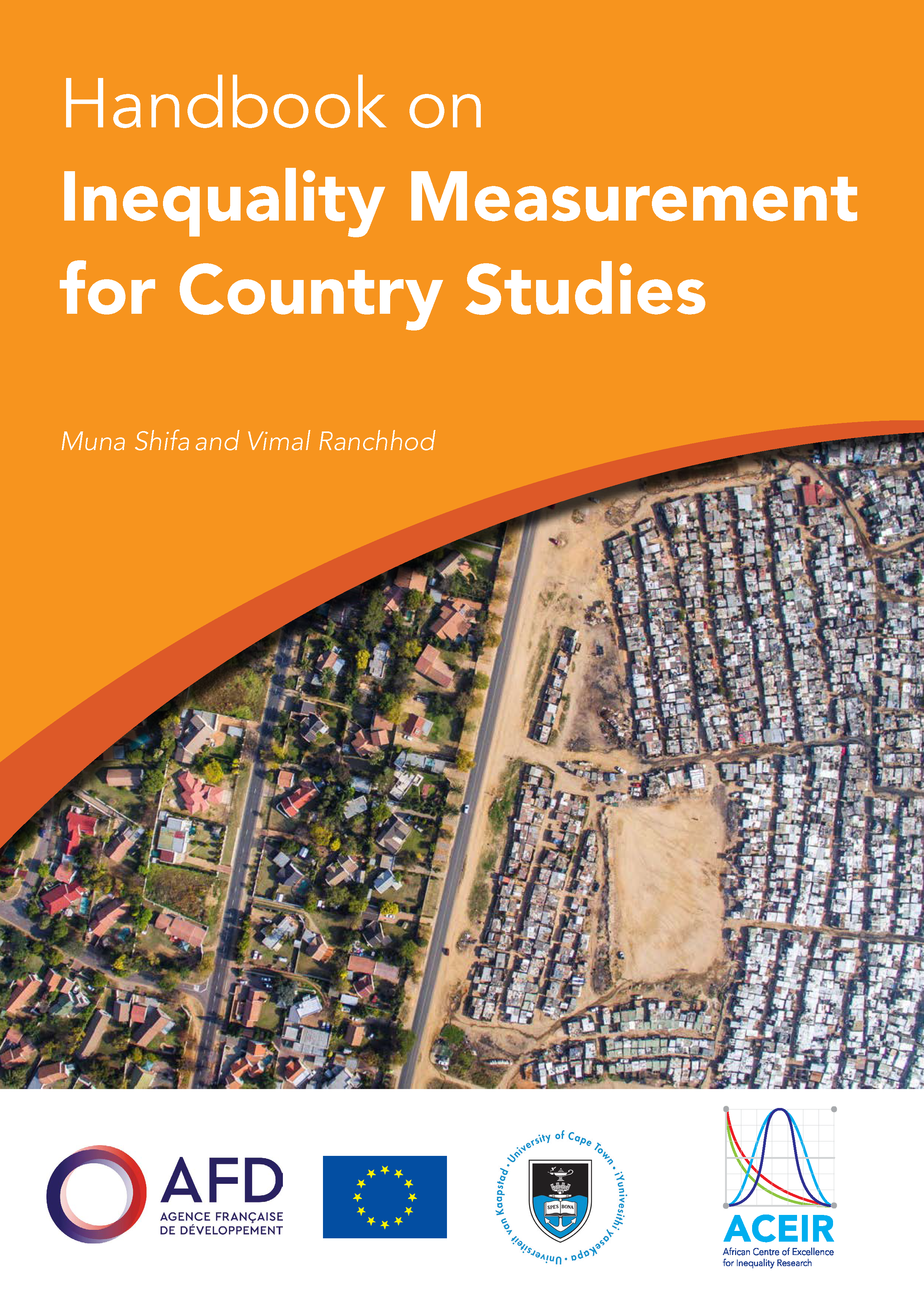The research resources listed here are the results of collaborations between researchers from different ACEIR country nodes and sometimes in collaboration with researchers from ACEIR partner organisations.
ACEIR datahub
The DataFirst team undertakes research on the quality and usability of national data, and trains African data scientists. As Africa’s only internationally-certified open research data repository, DataFirst provides African data producers with a trusted venue through which they can share their data. By opening access to socio-economic data from African countries, DataFirst strengthens African open data ecosystems for data-directed policymaking to reduce poverty and inequality. Visit the ACEIR datahub.
Handbook on inequality measurement for country studies
Muna Shifa, Vimal Ranchhod, 2019, revised 2023 (English); 2022 (French)

To build capacity for the country-level inequality analysis, a Handbook on Inequality Measurement for Country Studies was developed by ACEIR researchers at the University of Cape Town. While the handbook was developed specifically as an intermediate guide for the ACEIR node members, it may also be useful for researchers who are planning an inequality study within a particular country. In addition, the handbook has been written with a meta objective in mind; namely to facilitate the comparability of results and findings across countries. This externality represents one of the major motivations for a multi-country collaboration such as ACEIR. English version | French version
Course material: Advanced poverty research methods course

This intensive online course for PhD students and academics from Latin America and Africa aimed to give a thorough technical and practical introduction to advanced quantitative poverty research methods, particularly multidimensional poverty theory and measurement. It was organised by the Bristol Poverty Institute, University of Bristol, in partnership with ACEIR and the Universidad Nacional Autónoma de México. The online course resources include videos, presentation slides, and reading lists. Access
The Ghana Fiscal Microsimulation tool

The GhaSim uses data from the Ghana Living Standards Survey 2017 to determine the effectiveness of government policies, especially social intervention policies. It was developed by the World Bank and builds on a study by ACEIR Ghana as part of a project of Oxfam in Ghana. Access
Workshop on climate change, inequality, and health
This workshop aimed to assist early career researchers to explore topics for research on the linkages between the three critical Sustainable Development Goals on good health and well-being, reduced inequalities, and climate action. It was hosted by ACEIR and the ARUA Centre of Excellence for Climate and Development at the 2021 ARUA biennial conference. Recording
